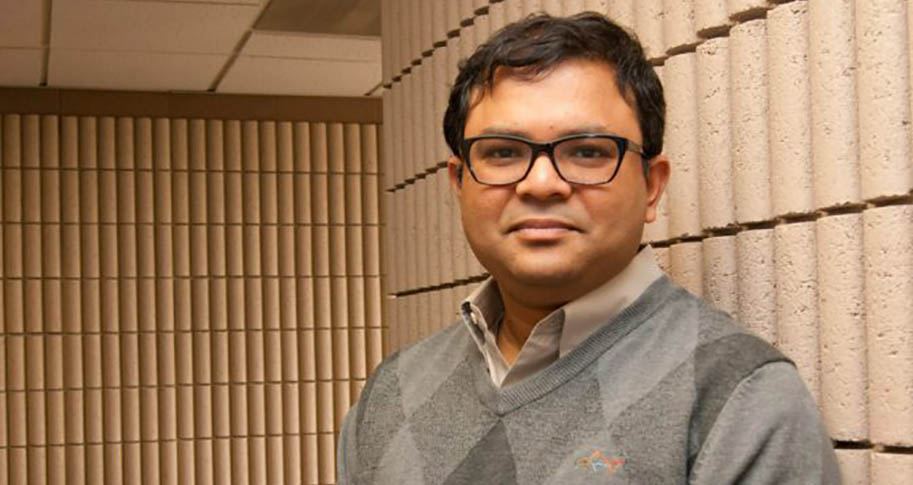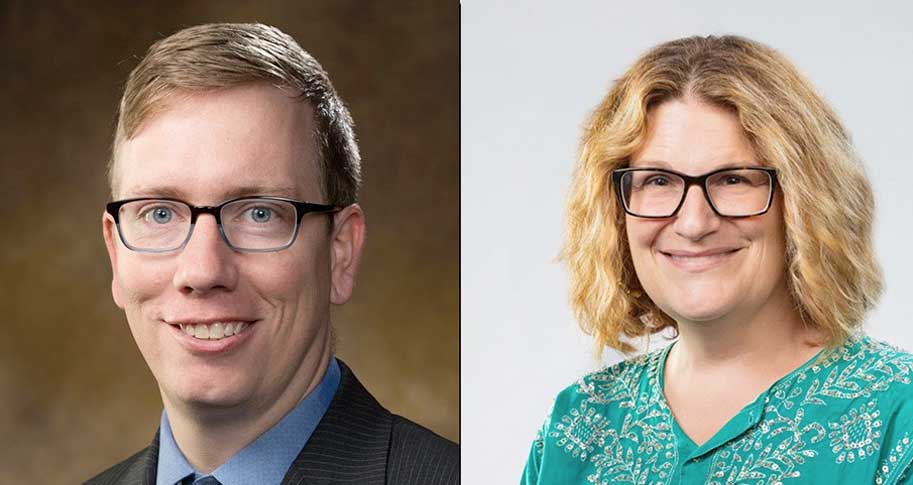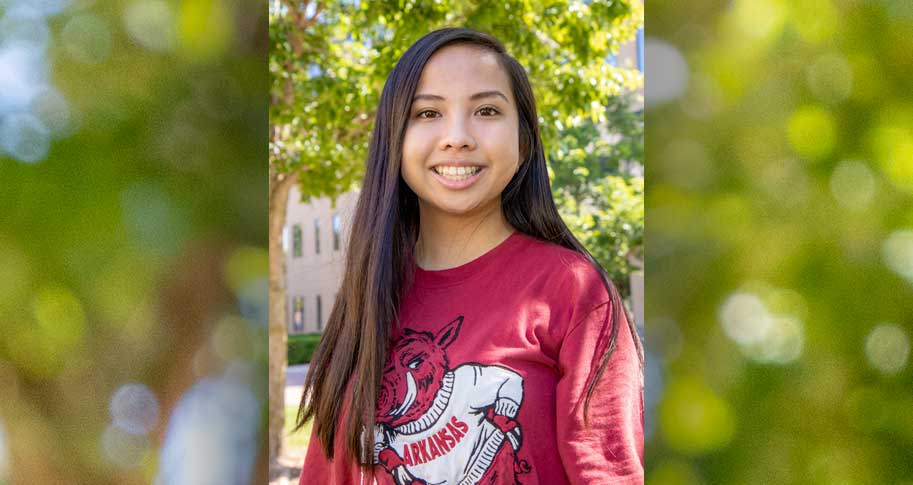
As a college student in his native Bangladesh, Muhammad Rahman became fascinated with looking at the world through economics. He listened intently to his professor explain the rise of capitalism and socialism as well as Japan’s economic history.
Had he followed in his family’s footsteps, he would have been an engineer or a physician. But economics and teaching was his calling – one that led him to Walton College, where he began duties as a clinical assistant economics professor at the beginning of the 2014-15 academic year.
Rahman excelled in liberal arts on his college acceptance exams and was one of a small percentage of applicants to be accepted to the University of Dhaka where, during his second year in school, he discovered his interest for economics. Though Rahman embraced his new found interest, he needed a little help with some of the concepts. With the help from a classmate, who had been studying economics since junior high, Rahman began to excel. That classmate was his wife, Farzana Huq.
“She was my guide when I was studying economics,” he says. “I had no clue.”
After earning bachelor’s and master’s degrees from the University of Dhaka, Rahman wanted to come to the United States to pursue a doctorate at the Indiana University. There was a lot to distract him from his studies. During his second year in the doctoral program, his wife gave birth to their first daughter and, during the last, they became parents of a second girl.
Following graduation, Rahman and his family moved to Dhahran, Saudi Arabia, where he taught economics – many of them to descendants of Saudi Arabia’s royal family – at King Fahd University of Petroleum and Minerals. From there, he returned to the United States to teach at Mercer University at Savannah, Georgia.
“But when you get a job opportunity from the University of Arkansas, you can’t say no.”
Rahman counts himself lucky for his teaching experiences at King Fahd and Mercer. “But when you get a job opportunity from the University of Arkansas, you can’t say no,” he says.
He says he saw the Walton College as a place where “infinite potential” can take place. But it was only after arriving to the UA that he discovered the friendliness of the faculty, many of whom have been welcoming and helpful. That warmth extends to students as well, Rahman says, adding that it’s common on most any day to see a full professor go to lunch with a graduate student. “Collegiality is the most important aspect of this business school,” he says.
Rahman’s workload is a busy one. During his first year at Walton, he taught both introductory micro and macroeconomic courses, Emerging Markets, Macroeconomic Theory and graduate level courses as well.
Since moving to Arkansas, he and his wife have become parents of a boy in addition to their two daughters.
He says he finds the students friendly and civil. “I always have classes of students who are understanding,” he says.
His research involves exploring civil avenues of macroeconomics. Those projects include the economics of private vs. public education, distributional aspects of fiscal policy and other macroeconomic aspects of public economies. He is also studying peoples’ usage of electricity, natural gas and gasoline, which could influence public policy in countries that set prices for such commodities.
Rahman says he is happy to be at Walton and is excited to see where it will lead. “When you have people who are leaders of their field, this college can go anywhere,” he says.




